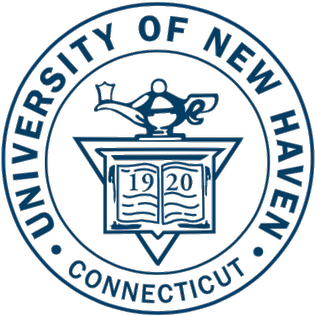Separating from the Other U.N.H.
Uproar and controversy have seem to spark within the University of New Haven and surprisingly it had nothing to do with President Trump’s recent executive orders, but the rumor that U.N.H. may not actually be U.N.H. anymore. Fear not, the university will remain U.N.H. in concern to leisurely conversation among fellow students, but will stand strongly as the University of New Haven for all business and commercial purposes.
Lyn Chamberlin, Vice President of Marketing and Communications, joined the university’s administration team in the late summer with the mission of moving the university forward to make the essense more visible to the outside world. Her purpose is to embed and instill that this is the University of New Haven.
A memo that was recently sent out from Chamberlin’s desk seemed to be misinterpreted by many on campus who held concerns regarding the idea of changing the acronym. According to her, the memo was intended to explain how “U.N.H.” will no longer be utilized in regards to all official university communications such as speeches given by the president, various products being printed and the website. In these circumstances the university will be introduced as the University of New Haven and will later be referred to as “the university” to “the school.”
The motive behind the change was created to separate the university from more prominently known universities that utilize the same acronym, such as the University of New Hampshire. The university has faced continuously faced with the misconception of U.N.H. due to it’s proximity to Boston, which, again, clashes with the University of New Hampshire.
Allison Bellucci, a student at the University of New Hampshire who originates from West Hartford, said, “If I’m in Connecticut and say U.N.H. they think I’m saying New Haven, but when I’m in New Hampshire and say it people never mix it up.”
Elizabeth Clement who is also from New Hampshire says she would never have thought of New Haven, which proves the university’s point that we fall short of being the more known U.N.H. as is also expressed when googled and New Haven is continuously listed below New Hampshire.
Always falling second, the university suffers from exposure that carries the potential to draw in perspective students. The interest of more prospective students leads both financial and physical growth of the university that will only foster the opportunity to significantly prosper.
“It’s a process of change and renewal and getting back to the first principle of what this university is so special,” said Chamberlin.
The separation between the U.N.H.s of New England will serve greater purpose by allowing the university’s name to stand alone and gain more recognition among potential students. The hope is that over time people will have a solid idea and knowledge of the University of New Haven.
“It is not about cosmetics, it is not about optics, this is intuitive that in the end of the day is about increasing enrollment,” Chamberlin said. “It’s all about having the University of New Haven be a destination school for prospective students and graduate students and for parents making this big decision.”
Chamberlin also hopes that by successfully executing the transition and gaining the name recognition that the university deserves the degree earned within the university will be held with more value.
The transition will bear to fiscal repercussions as the logo has already been updated to the university’s seal, sporting it’s entire name and the printed materials that utilized are constantly being printed, so an update will wreak no effect.
“It’s time to stand up and cheer for the university and what it represents,” Chamberlin says.

Samantha is a senior communication major with a double concentration in journalism and public relations and a minor in political science. Within the paper,...














